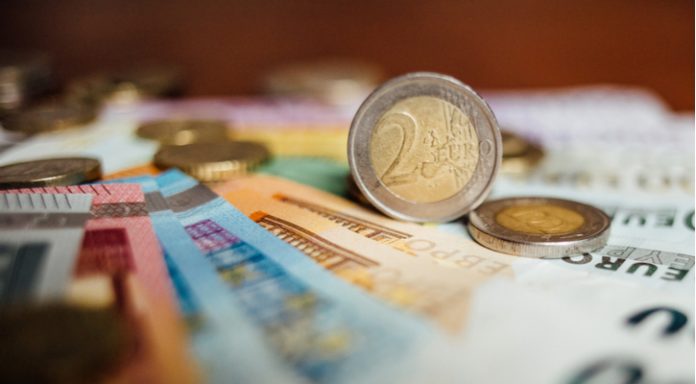A cautious sounding European Central Bank President, Mario Draghi, pulled the euro lower on Thursday. The pound euro exchange rate hit a high of €1.1226 an increase of 0.2% on the day.
| What do these figures mean? |
|---|
When measuring the value of a pair of currencies, one set equals 1 unit and the other shows the current equivalent. As the market moves, the amount will vary from minute to minute. For example, it could be written: 1 GBP = 1.13990 EUR Here, £1 is equivalent to approximately €1.14. This specifically measures the pound’s worth against the euro. If the euro amount increases in this pairing, it’s positive for the pound. Or, if you were looking at it the other way around: 1 EUR = 0.87271 GBP In this example, €1 is equivalent to approximately £0.87. This measures the euro’s worth versus the British pound. If the sterling number gets larger, it’s good news for the euro. |
Sterling has struggled to make much ground this week as Brexit concerns are weighing on sentiment for the pound. Earlier in the week, the European Council Donald Tusk as good as rejected UK Prime Minister Theresa May’s vision of a post Brexit EU-UK relationship. Instead Donald Tusk warned that the UK must lower its expectations.
In the previous session the negative headlines continued to roll out. This time the EU announced a suspension to Brexit negotiations until a solution is found for the Irish border issue. With time ticking fears are increasing that a deal won’t be completed in time. This would mean a hard Brexit could be on the cards.
| Why is a “soft” Brexit better for sterling than a “hard” Brexit? |
|---|
| A soft Brexit implies anything less than UK’s complete withdrawal from the EU. For example, it could mean the UK retains some form of membership to the European Union single market in exchange for some free movement of people, i.e. immigration. This is considered more positive than a “hard” Brexit, which is a full severance from the EU. The reason “soft” is considered more pound-friendly is because the economic impact would be lower. If there is less negative impact on the economy, foreign investors will continue to invest in the UK. As investment requires local currency, this increased demand for the pound then boosts its value. |
After a quiet week as far as the UK economic calendar is concerned, investors will be pleased to have a slight distraction from Brexit talks. Today sees a raft of economic data being released, including manufacturing numbers and trade balance figures.
ECB’s Draghi Pulls Euro Lower
The ECB made no changes to its monetary policy on Thursday. As analysts expected, the central bank kept interest rates constant at 0% and made no changes to its bond buying programme. The bank did, however, remove a pledge to increase bond buying if needed from its statement. This was seen as a step closer to removing stimulus measures in the eurozone, which is a step closer to increasing interest rates.
| Why do raised interest rates boost a currency’s value? |
|---|
| Interest rates are key to understanding exchange rate movements. Those who have large sums of money to invest want the highest return on their investments. Higher interest rate environments tend to offer higher yields. So, if the interest rate or at least the interest rate expectation of a country is relatively higher compared to another, then it attracts more foreign capital investment. Large corporations and investors need local currency to invest. More local currency used then boosts the demand of that currency, pushing the value higher. |
However, Draghi then gave a very cautious sounding press conference, whereby he reaffirmed the dovish stance on the central bank. Draghi continued to cite inflation as a problem in the eurozone and even downgraded inflation forecasts to just 1.4% in 2019, down from 1.5% previously. This means that inflation is forecast to still be significantly lower than the central banks 2% target rate. Interest rates are unlikely to be raised until the rate of inflation moves substantially higher. As a result, the euro fell.
Today euro traders will be back watching economic data, with releases from Germany potentially causing some volatility before the weekend.
This article was initially published on TransferWise.com from the same author. The content at Currency Live is the sole opinion of the authors and in no way reflects the views of TransferWise Inc. |





